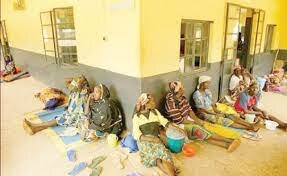


HealthyTips Nigeria | Natural Remedies, Wellness & Healthy Living
Your trusted guide to natural health tips, fitness, and everyday wellness.

It has become worrisome that more medical practitioners keep leaving Nigeria and seeking for greener pasture abroad. This is a big challenge as the lives of Nigerians matter and the government as well as the private sector should begin to deliberately take actions that would keep our health workers within our borders. One of the six building blocks of WHO concerning reforming or building the health system is the health workforce, and Nigeria as I type, Nigeria is a far cry meeting up the requirement from what we have right now and everyday service delivery is going down. Some of our hospitals are in the worst cases and the primary health centers are not doing too good across the country.
The primary health care system, which is supposed to be the foundation and starting point of our health system, is the one that is being neglected in Nigeria. It’s very clear that many people don’t use primary health care services. The health system pyramid has been turned upside down. Primary health care is meant to serve over 80% of the population, and most of their health issues should be treated there. But because these facilities are not working well, people are forced to go to secondary hospitals or even big tertiary institutions just for simple things like diarrhea or malaria, which should be treated at the primary level.
Different states in Nigeria are facing financial problems. Some can’t even pay salaries, which is one reason health workers leave the country. Despite this, the government doesn’t invest much in health because it doesn’t bring in much money. So, you see a lack of investment in the health sector, and secondary health facilities may not be working as well as they should. However, there have been some improvements in certain places, like Cross River and Edo State, where a lot of investment has gone into primary health care. The IAD has also done a lot to upgrade health centers.
Another challenge is health insurance coverage. People in rural areas don’t seem to get as much attention as those in the cities. Right now, less than 3% of Nigerians have any form of insurance, and we need to change that if we want to achieve universal health coverage. I believe there should be insurance for everyone, whether they can afford it or not. The Nigerian government should help pay for those who cannot afford it, while people in both the formal and informal sectors should contribute to a central pool. This way, we can share the risk and benefits equally.